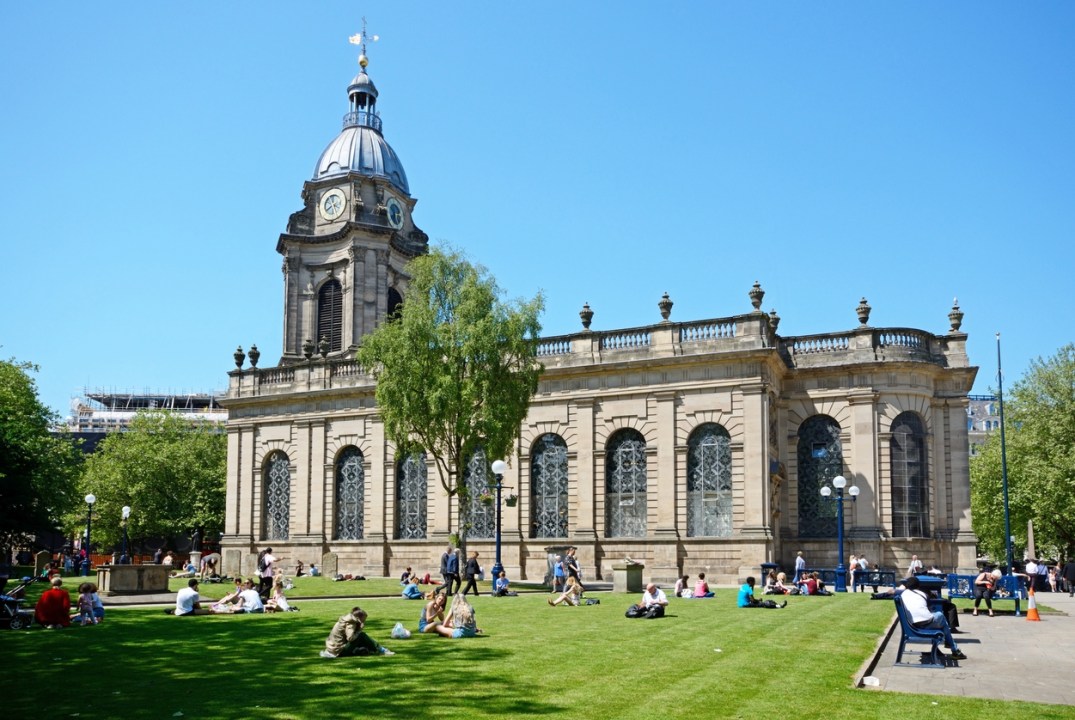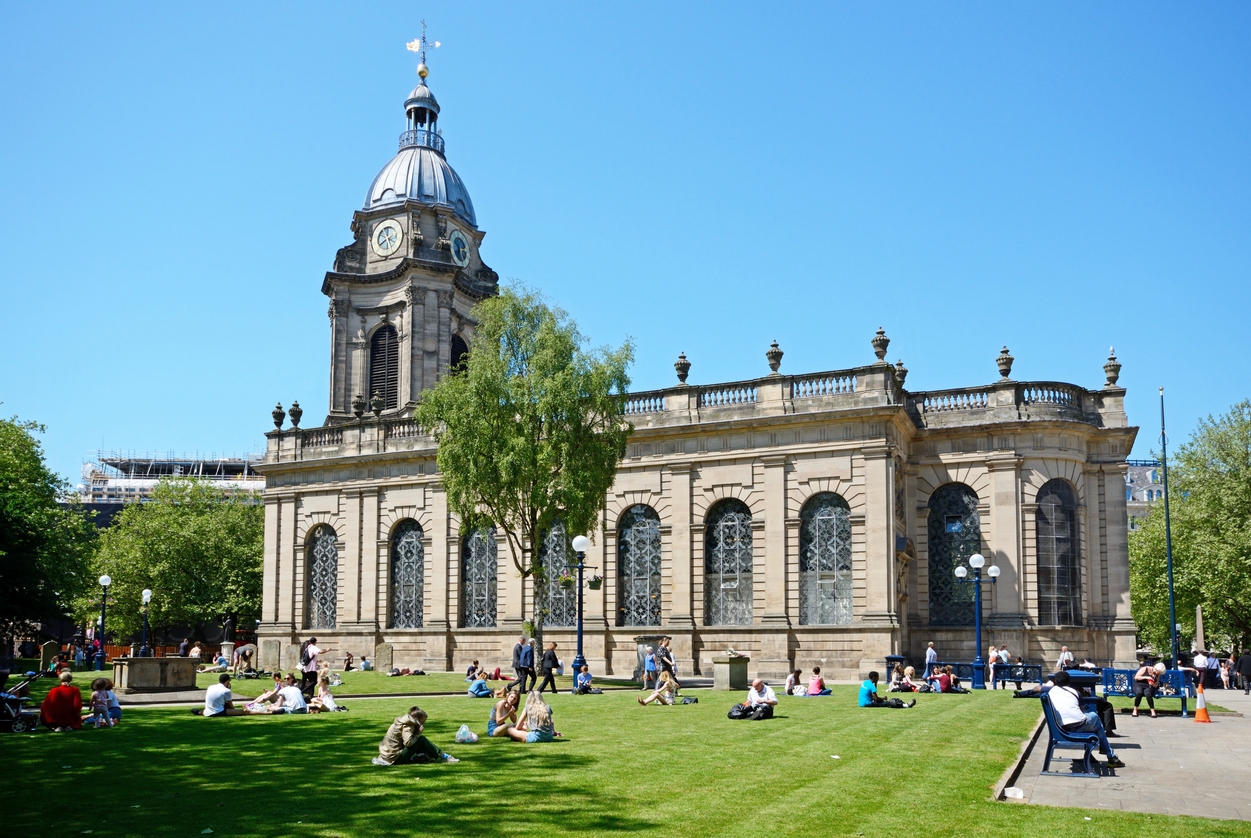During my gap year in 1981, I worked on the 24th floor of Birmingham’s Alpha Tower for the Regional Manpower Intelligence Unit. The city below, with its express ways racing past the Venetian Gothic of Joseph Chamberlain’s house and the Roman Revival of the town hall, were the realisation of the city planner Herbert Manzoni’s dream of creating a Midlands Motown. The Rotunda, the acres of systems-built tower blocks, even the inverted ziggurat of a modernist central library, together amounted to the antithesis of the smoky, tweedy, horse-powered, cut-throat Birmingham the world now knows from Peaky Blinders.
That year, though, was the one which went wrong for Birmingham, Richard Vinen argues. Unlike Liverpool, Glasgow, Sheffield and other industrial British cities, Birmingham had not really known mass unemployment until the early 1980s, so it was more of an existential shock. Its 20th century was a success story, thanks to such showpiece factories as Cadbury’s at Bournville, the Austin plant at Longbridge, Fort Dunlop at Erdington and the BSA at Small Heath. The city had helped win the second world war: it built the Spitfires that beat the Luftwaffe in Europe and its refugee Jewish physicists split the atom at Birmingham University before their research was put to decisive use in Hiroshima and Nagasaki.
But the years of industrial glory were ending. My job was to tot up unemployment figures from data sent in from job centres across the West Midlands. Following the chancellor Geoffrey Howe’s deflationary budgets and Thatcherite commitment to ending British Leyland’s state subsidy, unemployment rose so quickly that whoever supplied our office with Tippex must have been coining it. Unemployment alone became big business. The stationery firm Kenrick and Jefferson was said to be the only thriving company in West Bromwich because it had the contract to print unemployment benefit cards.








Comments
Join the debate for just £1 a month
Be part of the conversation with other Spectator readers by getting your first three months for £3.
UNLOCK ACCESS Just £1 a monthAlready a subscriber? Log in